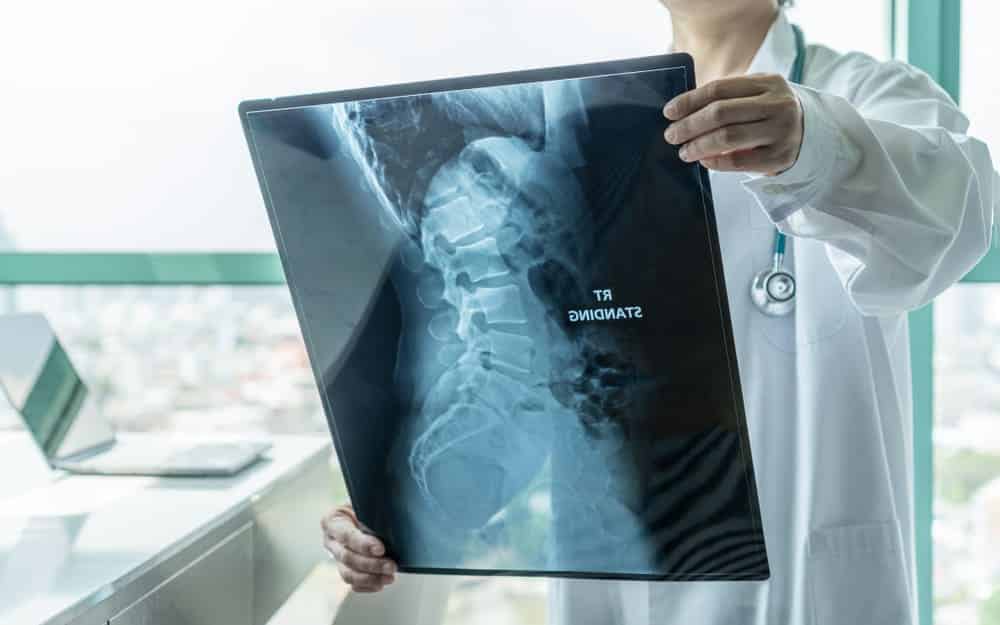If you’ve been diagnosed with spinal stenosis, you might be wondering about the variety of treatments out there and which one is going to be best for you. Spinal stenosis refers to when the spinal column begins to narrow, making small spaces even smaller and putting pressure on nerves and the nervous system running through your spine. This happens most often in the neck and in the lower back. It is important to speak with your doctor about your diagnosis and their recommended next steps for treatment. From simple lifestyle changes to spinal stenosis surgery, the type of treatment plan will depend on the severity of your spinal stenosis and may even depend on how your spinal stenosis occurred.
Causes of Spinal Stenosis
While spinal stenosis can occur gradually over time as you age, it can also be caused by a number of injuries or abnormalities. If your spine has been affected by car accident injuries, for example, damage to the spine can cause the vertebrae protecting your nervous system to put pressure on nerves. A herniated disc can also put pressure on the spine, especially if a disc ruptures and spills out of its normal location. There are also abnormal types of growth that can put pressure on the nerves in your spine, such as tumors or even overgrowth of bone. No matter the reason for your spinal stenosis, it is important to talk with your doctor about how your spinal stenosis will affect your daily life and which treatments can help.
Lifestyle Changes
In cases of mild spinal stenosis, your doctor may recommend simple lifestyle changes and exercises you can do at home to help alleviate pain and keep your spine properly aligned. There are regular stretches you can do each day to help keep your spine and its supporting muscles flexible and strong. Daily exercises can also help encourage proper blood flow to your spine. Your doctor will likely talk with you about paying attention to your posture and how specific positions may cause more pain or discomfort. If you work a strenuous job that requires a lot of heavy lifting or frequent bending, it is important to share this with your doctor.
Chiropractic Care
Chiropractic care is a great treatment option for mild and moderate spinal stenosis because the treatment is natural and non-invasive. If you visit an Atlanta chiropractor to help treat your spinal stenosis, they will likely use a combination of gentle chiropractic adjustments and massage techniques. Chiropractic techniques focus on the spine and its supporting muscles to relieve your pain and also realign the spine to take pressure off of nerves. Because chiropractors focus on the spine and how it affects the rest of the body, this type of treatment is often a great place to start and a safe way to find out if more conservative approaches to treatment will help you avoid more serious surgical interventions.
Pain and Inflammation Management
Chiropractors do not prescribe medications or use pain and inflammation medication as part of their treatment plans. If your spinal stenosis continues to affect your daily life even with the help of chiropractic care, you may also want to learn more about pain and inflammation management options from an orthopedic doctor. They may prescribe medications to help alleviate pain that might affect how you complete your daily tasks. Inflammation management refers to medications that help bring down swelling in your spine, neck, or lower back, which can also help take pressure off of your nerves. Your treatment plan should never just be about medication and your doctor may also want to recommend a combination of lifestyle changes, exercises, and chiropractic as well.
Minimally Invasive Procedures
Minimally invasive procedures are types of interventional spine medicine that do help to alleviate pain in less invasive ways than surgery. Minimally invasive procedures are usually practiced by a neurologist and the goals are to help you experience less pain while you heal and also hopefully help you avoid surgery. These procedures are sometimes referred to as minimally invasive spine surgery, which actually refer to treatments like injections. Injections for moderate to severe spinal stenosis can help give you relief from pain for months at a time.
Spinal Stenosis Surgery
When other more conservative approaches to treatment cannot fully address your severe spinal stenosis, spinal stenosis surgery may be recommended. You will meet with a spine specialist who will help determine which type of spinal stenosis surgery is most appropriate for your specific diagnosis and experience. The most common form of spinal stenosis surgery involves removing a part of the vertebrae that will help make more room for your nerves so they aren’t quite so compressed. Other procedures can be done depending on your doctor’s recommendation. Spine specialists at AICA Orthopedics are highly skilled and knowledgeable about spinal stenosis surgery and what treatment option is best for you. Call us today!





